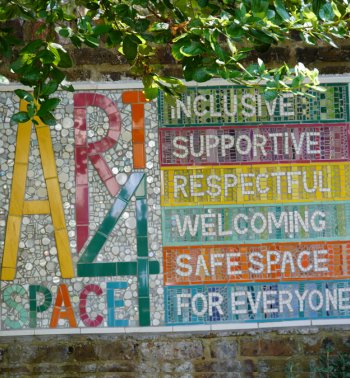Chronic pain disproportionately affects people from Black backgrounds, and traditional approaches have failed to provide effective, equitable care.
The PEACS (Pain: Equality of Care and Support in the Community) programme was developed to provide a bio-psycho-social, person-centred approach to chronic pain management with a particular focus on Black communities in Lambeth, where the prevalence of chronic pain is significantly higher, especially amongst black women.
The intervention was developed through co-design and was culturally adapted to the specific needs of individuals to support sustainable behaviour-change, empower and promote self-management and improved quality of life. The pathway used innovative techniques to address both health inequalities and disparities across service provision, by adopting a series of Lifestyle Medicine psychoeducational intervention workshops, holistic clinical assessments, and peer-support groups, to create a more accessible and improve health outcomes.
Across two years 1,547 people accessed the PEACS programme.
Read the PEACS Impact and Evaluation Reports
The PEACS Impact Report (PDF) reviews two years of the programme, including:
- What we did;
- Our impact;
- Our recommendations and looking ahead.
This file may not be suitable for users of assistive technology. If you use assistive technology (such as a screen reader) and need a version of this document in a more accessible format, please email mindandbody
You can also read the independent evaluation of the PEACS report, conducted by The Tavistock Institute.
Programme Impact
- An average of 70% of participants were from Black Backgrounds.
- Black women aged 45-64 were the most engaged group at 37% of total participants.
- There were no health outcome disparities across ethnicity and gender suggesting the intervention is equally beneficial, regardless of demographic background.
- PEACS developed and embedded the first chronic pain register in England, providing a template for proactive patient identification and outreach.
- PEACS was developed with experts-by-experience, ensuring the intervention addressed patient needs in a bespoke, culturally relevant manner.
- Over 1,547 patients engaged, with nearly 90% of people surveyed reporting that they gained new knowledge about pain management and would recommend the programme to others.
- Two thirds of people said the intervention compared favourably to other interactions with healthcare services.
- 59% reported stronger social connections with another 67% reporting reduced feelings of isolation. 65% of participants felt more in control of their health.
- 79% developed confidence in self-management leading to improved mental and physical wellbeing.
- There were statistically significant improvements in patients’ overall experiences of pain measured by validated scales.
- We found statistically significant reductions in use of prescribed medications, with nearly half of participants cutting down or stopping medication.
- Over half of participants reduced their number of GP attendances following the programme.
- There were significant reductions in the type and potency of neuropathic medications used after completion of the programme.
- PEACS was evaluated as cost-effective, and helped optimize resource use, set against a current £22.7M spend per year in primary care costs for people with chronic pain in Lambeth.
- Highly Commended at the 2024 HSJ (Health Service Journal) Awards for “Innovation in Reducing Healthcare Inequalities.”
- The chronic pain register was successfully embedded across all practices in Lambeth.
- The success of PEACS led to local and national interest, including discussions on scaling the model across the UK and internationally (e.g., Singapore).



